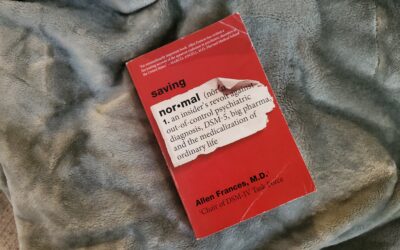 Has Your Relationship Lost Its Romantic Spark?
Has Your Relationship Lost Its Romantic Spark?
Does your significant other feel like a roommate, rather than a romantic partner? Maybe you and your partner manage your home and family life well but have trouble being intimate, leading you to feel like you simply pay bills together. You might even wonder whether you had a romantic connection in the first place. Has a physical or emotional affair made it difficult to trust or be vulnerable with your partner? Overall, do you simply wish that you could not only connect to your partner on a deep level, but also maintain that connection as you face life’s challenges and joys together?
Chronic relationship problems can make daily life unbearable. You might rarely speak to your partner, leaving you feeling lonely and wondering why you’re in the relationship in the first place. Or, maybe you both constantly fight over finances, parenting or managing household tasks and work schedules. Perhaps your partner was unfaithful or broke your trust, and you now struggle with sudden flashbacks to the moment you discovered this betrayal, making your home tense rather than peaceful. Thoughts like “I didn’t think it would be this hard,” or “I didn’t think we would ever feel so disconnected” might run through your mind throughout the day. Perhaps you are questioning whether or not you and your partner can ever resolve these issues and create a loving, lasting bond.
 All Relationships Weather Difficulties
All Relationships Weather Difficulties
Just as a plant needs the perfect balance of sunlight and water to grow, a relationship needs plenty of diligent, nurturing attention to flourish. However, since many partners find it difficult to be present in a relationship, it’s hardly surprising that roughly 40 to 50 percent of first marriages end in divorce. Overall, it’s safe to say that all couples experience difficulties and need to pick the weeds that grow with time and conflict.
Even healthy relationships face difficulties for a variety of reasons. Unhealthy patterns of behavior from past relationships, including relationships with family members and early caregivers, can affect the present partnership, especially if this behavior involves poor communication habits. Alternatively, couples facing major life transitions – having a child, buying a home, starting careers or even retiring – are likely to face relationship problems stemming from stress and uncertainty. Couples who have small children might struggle with keeping parenting values consistent, and one parent might feel excluded from the parenting process. Extended family members can also cause relationship difficulties, especially if in-laws, siblings and others are trying to be too involved with the relationship.
Again, all couples deal with problems, and conflict does not make your relationship dysfunctional. However, if you feel that conflict or even a sense of stagnation is the norm for your partnership, couples therapy can provide an opportunity to rebuild intimacy.
Couples Counseling Can Help You Build A Stronger Bond
Few of us get formal training in communication, and those who do are rarely taught the special skills needed for communicating with a romantic partner. Couples and marriage counseling can give you a safe space to learn how to communicate and explore why you’re having trouble connecting on a deep level. More importantly, it offers a chance for you and your partner to carve out special time to talk about your relationship.
With a post-graduate degree in couples counseling and ten years of couples counseling experience, I’ve seen couples make amazing progress, establish their relationships as a priority and rediscover their romantic spark.
 You might still have objections to couples therapy…
You might still have objections to couples therapy…
It seems impossible to get past an affair.
If your partner’s had a physical or emotional affair, it might seem like an unforgivable offense. However, while discovering an affair is a truly hurtful experience and your pain deserves to be validated, it’s important to understand that infidelity is often a symptom of a relationship’s problems and can even serve as an opportunity to analyze those problems with your partner. In fact, many couples find that they’re able to not only overcome infidelity, but also build a stronger relationship in its aftermath.
My partner doesn’t want to come.
It’s common for partners to refuse to come to a couples counseling session, as many people worry that the therapist will take sides or be biased against them. Couples counseling is different than individual counseling, as the “relationship” is my client—not the individual partners. My main goal is to make my clients feel as comfortable as possible, and I strive to remain unbiased and open to each partner’s needs, even if that means referring them to a different couples therapist who might be a better fit.
Are you ready to build a stronger bond with your partner? Contact me today for a free phone consultation, and you can ask me any questions you may have about my couples therapy practice online and in Simsbury, CT.
Guide to Integrative Counseling
There’s a common misconception out there that making yourself feel better is as simple as finding a fix. If you break your arm, all you have to do is put a cast on it and wait for it to heal. And if someone breaks your heart, all you have to do is buy a pint of ice...
A New Normal: Why Medicalizing Mental Health is a Problem
This above photo is my personal copy of Saving Normal by Allen Frances, MD. I love this book because it really explains how we have come to medicalize ordinary life. Dr. Frances goes into account firsthand with direct experience of the development of the DSM-IV to the...
How To Openly & Honestly Ask For A More Supportive Relationship
At one point or another, most people have the unfortunate experience of being in an unsupportive relationship. These relationships can make us feel unheard, unseen, and unloved. There are times when we want our loved one to celebrate our successes and others when we...
6 Honest Reasons You and Your Partner Will Benefit from Premarital Counseling
Getting married is a big deal. In fact, committing the rest of your life to your partner is quite possibly the most serious choice you will ever make. Now, this isn’t news. You’ve likely been hearing how big of a decision marriage is since the moment you got engaged....





